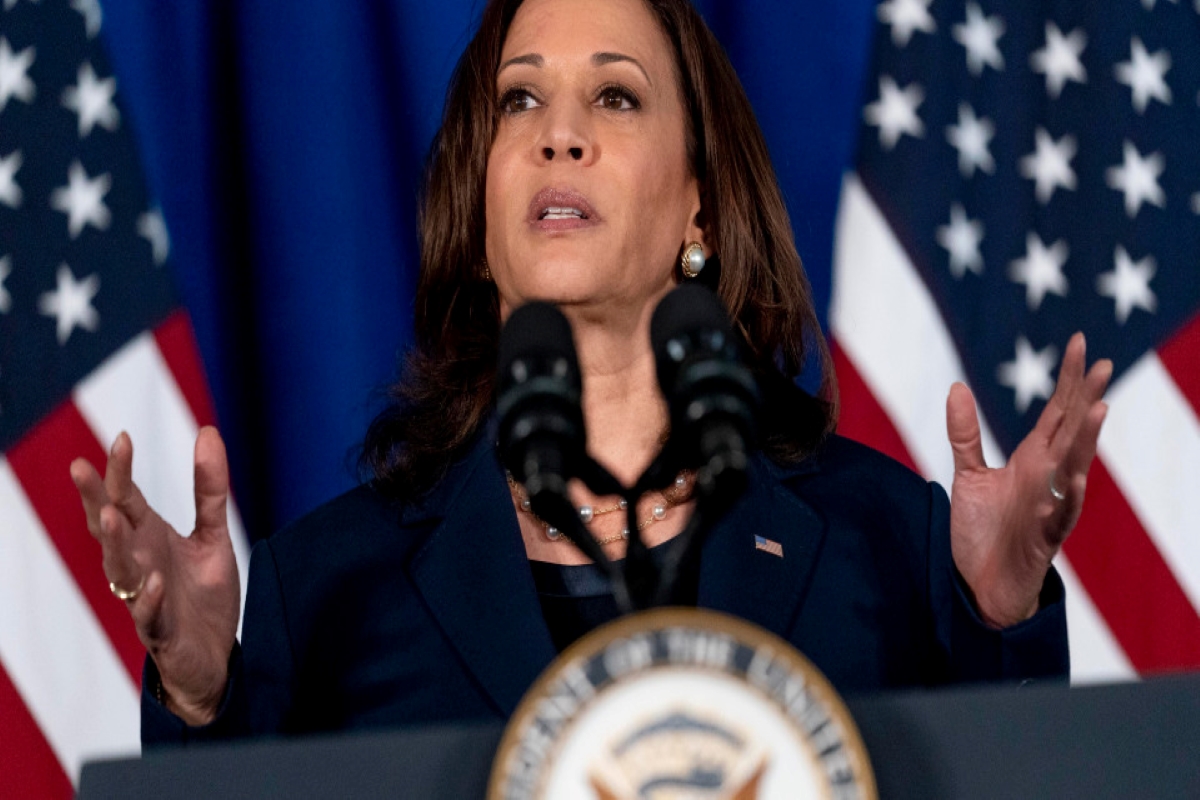The Biden administration has unveiled new efforts to help protect voting rights amid a call to “save American democracy”.
President Joe Biden met with civil rights leaders on Thursday in the West Wing, while Vice President Kamala Harris announced $25 million in new spending by the Democratic National Committee to support efforts to protect voting access ahead of the 2022 midterm elections.
Advertisement
Biden and his team have touted ongoing legal efforts and have repeatedly promised a major legislative push on voting rights after Senate Republicans blocked a sweeping election reform bill last month.
So far, a major speech has not happened and a trip has not occurred, leading to rising frustration from those in his own party who view the GOP crackdown on voting rights as an existential threat to both Democrats and democracy.
That pressure has only mounted after a Supreme Court decision limited the ability of minorities to challenge state laws that Democrats say are discriminatory under the Voting Rights Act.
“We will not leave any stone unturned to save American democracy,” said Marc Morial, head of the National Urban League, as he stood with the Rev. Al Sharpton and other civil rights leaders after the meeting.
”This is an attack on a very fundamental value that undergirds this country. When we look at what’s happening in this nation, we see an effort to impose a system, American apartheid.”
During the meeting, Biden and Harris assured the civil rights leader that they would push Congress to pass voting rights legislation.
After Harris’ Thursday’s speech aides were discussing a Biden speech potentially as soon as next week, according to two White House officials who spoke on condition of anonymity.
Several states have enacted voting restrictions, and others are debating them.
Democrats have grown nervous that the new laws could suppress turnout for next year’s midterm elections when the party is trying to hold on to very narrow margins in both chambers of Congress.
“Folks, it is never too early to defend your rights,” Harris said.
But some Democrats and voting rights activists believe that the White House did not start nearly soon enough.
“Our backs are against the wall. This is the moment. We have no more time,” said Sherrilyn Ifill, president of the NAACP Legal Defense Fund. “I told the president: We will not be able to litigate our way out of this threat to Black citizenship.”
“We must have the president use his voice,” Ifill said.
Democrats on Capitol Hill have already tried to respond with a sweeping voting and elections bill that Senate Republicans united to block.
Most Republicans have similarly dismissed a separate bill, the John Lewis Voting Rights Advancement Act, which would restore sections of the Voting Rights Act that the Supreme Court previously weakened.
Those roadblocks have increased focus on the Senate filibuster, which, if left in place, would seem to provide insurmountable opposition to the pair of sweeping voting rights reform acts currently in Congress.
Although not abandoning hope of a legislative solution, the West Wing has been shifting focus to other measures to protect the vote, including legal remedies pursued by the Department of Justice and in individual states, according to the officials.
There also will be an emphasis on boosting voter turnout, with aides pointing to the successes Democrats had in getting out votes last year during the height of the pandemic.











